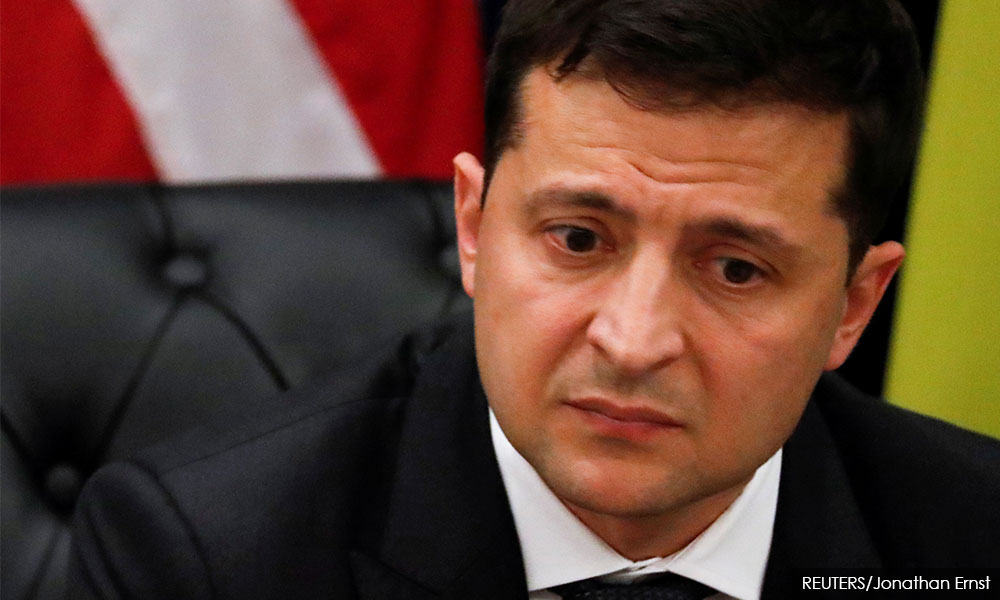Democrats in the US House of Representatives on Tuesday announced a formal impeachment investigation into President Donald Trump, accusing him of enlisting foreign help to damage political rival Joe Biden ahead of the 2020 election.
Under the Constitution, a president can be impeached for “treason, bribery, or other high crimes and misdemeanours” — terminology that has been the subject of some debate.
Gerald Ford, a former US president, famously said while in Congress that “an impeachable offence is whatever a majority of the House of Representatives considers it to be at a given moment in history.”
The following explains how impeachable offences are generally understood under US law.
What is treason?
Under the US Constitution, a person is guilty of treason if he or she goes to war against the United States or gives “aid or comfort” to an enemy. Treason is the only crime specifically defined by the Constitution.
There is not a treason case to be made against Trump because the United States is not at war with Ukraine or Russia, said Paul Rosenzweig, a former federal prosecutor in Washington who worked on the special counsel investigation into Bill Clinton.
What is bribery?
A federal law, known as the bribery statute, makes it a crime for a public official like Trump to corruptly request a thing of value in return for being influenced in the performance of an official act.
In an impeachment investigation, House members are not required to adhere to the definition of bribery in the criminal code and can define the term more broadly to encompass corrupt uses of presidential authority for personal gain, legal experts said.
Rosenzweig said bribery could potentially be one of the “articles of impeachment,” or charges, returned against Trump if the House takes that step.
What are “high crimes and misdemeanours”?
According to several constitutional lawyers, “high crimes and misdemeanours” is a purposefully vague term and can be defined by members of Congress.
Writings by the nation’s founders make clear that they were concerned about presidents abusing the public trust, said Rosenzweig, now a senior fellow at the libertarian think tank R Street Institute.
“The founders spoke about things like promising pardons to your friends to protect your own criminality,” said Rosenzweig. “They spoke about things like people being beholden to foreign governments. They spoke about profiting from the presidency.”
Some legal experts say there is already a strong impeachment case against Trump based on what is publicly known about his July 25 phone call with Ukrainian President Volodymyr Zelenskiy.

On that call, Trump said it “would be great” if Zelenskiy could investigate claims that Biden, a presidential candidate, had tried, as vice president under former President Barack Obama, to remove a Ukrainian prosecutor who had investigated an energy company that employed his son, Hunter Biden.
The Washington Post reported that Trump told his acting chief of staff to hold back almost US$400 million in military aid for Ukraine at least a week before the phone call.
Biden has confirmed he wanted the prosecutor fired. But no evidence has emerged that the former vice president did so to help his son. The wider US government, the European Union and other international institutions also wanted the prosecutor fired because of an alleged failure to pursue major corruption cases.
“Trump has already admitted the essentials – he called a foreign leader and asked him to use the legal engines of a foreign government to produce dirt on Trump’s American political rival,” said Frank Bowman, a law professor at the University of Missouri who has written a book about impeachment.
Trump said on Twitter on Tuesday that his call with Zelenskiy was “very friendly and totally appropriate,” and that he put “no pressure” on the Ukrainian president.
Jack Sharman, a lawyer at Lightfoot, Franklin & White who has worked on impeachment investigations, said Trump’s defence lawyers would likely argue in an impeachment proceeding that he has broad authority to control US government money. But Sharman said lawmakers could overcome this argument.
Bowman said the question lawmakers must ask is whether Trump abused his official power as the primary agent of American foreign relations for private political gain.
“If he did, and there was no plausible reason of state for his actions, that’s impeachable,” Bowman said.
What happens next?
A common misconception about impeachment is that it refers to the removal of a president from office. In fact, impeachment refers only to the House of Representatives, the lower chamber of Congress, bringing charges - similar to an indictment in a criminal case.
A president is only removed if two-thirds of the Senate, the upper chamber, vote to find him guilty. That has never occurred in US history, and is unlikely to happen to Trump because his Republican Party controls the Senate.
- Reuters
Transcript confirms Trump asked Ukraine president to investigate Biden

